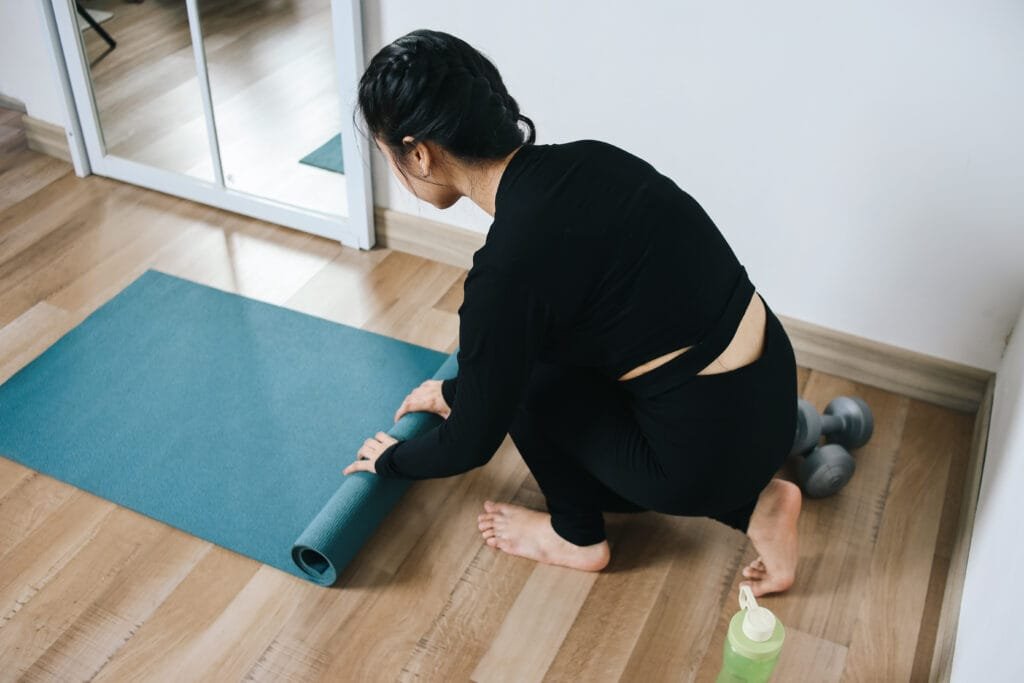Let me share a little experience. A few years ago, I found myself deep into health blogs, trying to understand what “BMI” even meant. Everyone kept throwing around this number like it was some kind of magic key to health. “Check your BMI,” they’d say, or “Do you fall in the healthy BMI range for women?” To be honest, I didn’t know how this number applied to me or how it was calculated. It felt overwhelming
But then, I did a bit of research (and trust me, it’s simpler than it sounds). BMI, or Body Mass Index, is just a number that helps estimate whether you’re underweight, in a healthy weight range, overweight, or even obese. It’s based on your height and weight, so it’s a quick tool that can help you get a sense of where you are. Here’s everything I found out along the way, and how it helped me—and could help you—on your fitness journey.
What is BMI and How is It Calculated?
BMI stands for Body Mass Index. It’s a way to figure out if your weight is appropriate for your height. The calculation is simple: you divide your weight in kilograms by your height in meters squared (or use a BMI calculator, because who wants to do all that math?). For women, the ideal BMI range typically falls between 18.5 and 24.9.
To make it easier, many online tools do the heavy lifting for you. Just input your weight and height, and boom—you have your BMI. I used a BMI calculator for women and was surprised by how quickly I could track my progress over time. It became a tool I used to stay accountable to myself.
What’s the Ideal BMI Range for Women?
The ideal BMI for women depends a bit on body type, but here are the general guidelines:
- Underweight: BMI less than 18.5
- Healthy BMI: 18.5 – 24.9
- Overweight: 25 – 29.9
- Obese: 30 and above
If your BMI falls within the healthy BMI range for women, great! You’re in a good spot to maintain your health with a balanced diet and regular exercise. But if you’re under or over this range, don’t worry—it’s just a tool, and it’s not the be-all and end-all. Other factors like muscle mass, body composition, and lifestyle play a huge role in overall health.
How Does BMI Relate to Your Health?
Now, you might be wondering, “Why should I care about this number?” Well, BMI isn’t just a number—it can be a useful indicator of potential health risks. Studies have shown that people with a BMI in the overweight or obese range are at higher risk for issues like heart disease, diabetes, and high blood pressure. That said, having a BMI calculator for women on hand helped me stay aware of where I stood and what changes I needed to make in my daily routine.
Is BMI Always Accurate?
Here’s where I had to pause. While BMI is a helpful tool, it has some limitations. For instance, it doesn’t differentiate between muscle and fat. So if you’re someone with a lot of muscle mass (shout out to all the weightlifters!), your BMI might categorize you as overweight, even though you’re in great shape. Women’s bodies are unique, and BMI doesn’t consider things like muscle tone or body fat percentage.
That’s why it’s important to use BMI as a guideline rather than an absolute marker of health. For a more complete picture, I’d recommend using it alongside other metrics, like body fat percentage or waist circumference.
How to Maintain a Healthy BMI
Maintaining a healthy BMI range for women doesn’t require drastic changes. When I first started, it was all about consistency. Here’s what worked for me:
- Balanced Diet: Focusing on whole foods, fruits, and vegetables gave me the energy I needed without packing on extra pounds.
- Regular Exercise: Even just 30 minutes a day of walking or light exercise helped keep my weight in check.
- Stay Hydrated: It’s easy to forget how much water helps with weight management. Drinking plenty of water kept me full longer and reduced cravings.
The Takeaway
So, if you’re just starting out on your health journey or looking to stay on track, checking your BMI can be a good first step. Just remember, your health is a long-term game, and while BMI is a useful tool, it’s just one piece of the puzzle. I encourage you to use a BMI calculator for women to find out where you stand, but don’t let it define you. Make small, sustainable changes, and you’ll see big results over time.
It’s about progress, not perfection. Whether you’re in the healthy BMI range or working toward it, the journey to better health is a marathon, not a sprint. You’ve got this!





